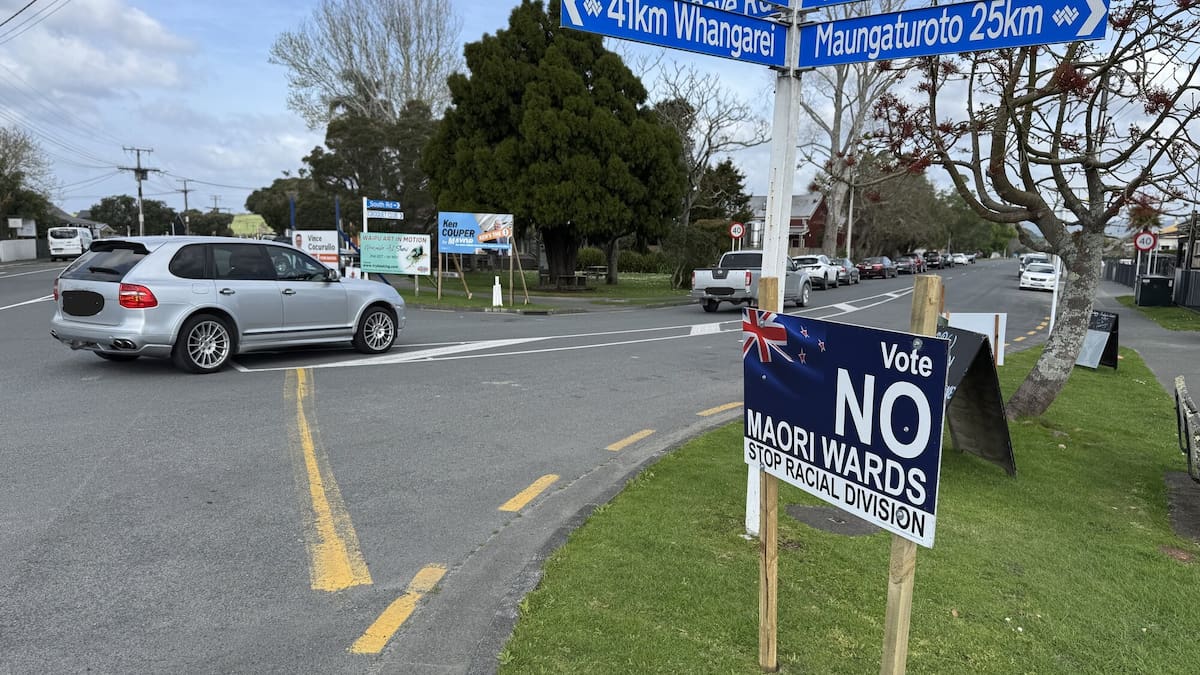That had also been the case nationally with the other 16 surviving Māori electoral areas.
Tepania said it was of note that the biggest numbers among those voting to keep the Far North electoral area were general ward voters.
Far North Kahika/Mayor Moko Tepania is delighted the local Māori ward is staying. Photo / NZME
Traditionally, Māori ward polling works against these electoral areas.
FNDC voters have in the past been polled on bringing in a Māori ward and rejected doing so.
Tepania said as a result, he had not been sure about which way the Far North District would vote on the issue at the elections.
He looked forward to having the Māori ward in place for continuing positive outcomes for the Far North.
The Ngā Tai o Tokerau Māori Ward’s four councillors are returning politicians, Awanui’s Hilda Halkyard-Harawira, Tāmati Rākena and newcomers Chicky Rudkin of Kaikohe and Waimate North’s Arohanui Allen.
Voting was very close in binding polls across Northland.
Whangārei District Council (WDC) is now one of 25 councils nationally to remove its Māori ward.
Progress results showed 23,702 electors had their say on the ward’s future, with a 57% majority voting to get rid of it.
That means the Whangārei District Māori Ward will be around for the 2025-2028 political term but will then disappear.
Inaugural WDC Māori ward incumbents Deb Nathan and Phoenix Ruka have been re-elected to the ward’s two seats for this three-year term.
It will be 2031 before any voting can happen on whether or not to have a WDC Māori ward again.
Meanwhile, Saturday’s progress results showed more than 51,000 people across the region voted on the future of Northland Regional Council’s (NRC) Te Raki Māori Constituency.
A 52% majority or 26,676 people voted to get rid of the electoral area in Northland’s closest poll margin.
This also means the constituency will be around for the 2025-2028 political term but will then disappear.
Newcomers Pita Tipene and Arama Morunga will represent the constituency’s two seats after incumbents Peter-Lucas Jones and Tui Shortland lost out in the election race.
Meanwhile, Kaipara District Council’s Te Moananui o Kaipara Māori Ward has disappeared at this year’s local elections after the council decided to abolish it in 2024.
This means its 18,327 voters could not have a say in a binding poll on its future at the local elections.
However, Kaipara voters were able to take part in the NRC Māori constituency poll.
Tepania said it was good to see Kaipara voters were able to have their chance to take part in polling through the regional council.
Saturday’s progress results mark the end of a significant moment in New Zealand’s political history – with Northland the first region in New Zealand where all its councils decided to bring in Māori electoral areas for the 2022 local elections.
■ LDR is local body journalism co-funded by RNZ and NZ On Air.

